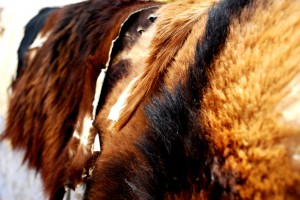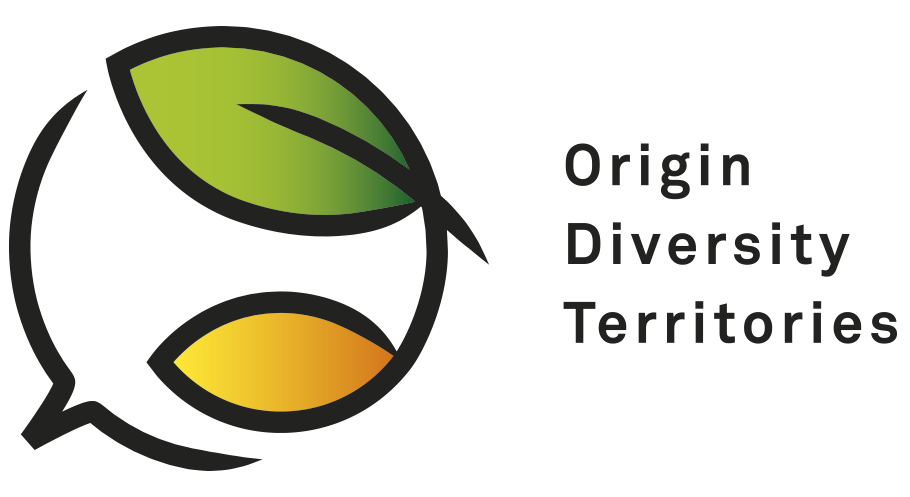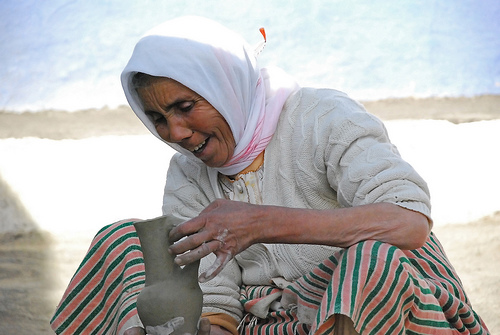Presentation and debates synthesis note
Formulating suitable questions to a whole of global changes (ecological, social, economic and cultural) interdependent and which impacts can be affected by different levels, is certainly, a central matter of our modern societies. In a quick evolution context, strategies to safeguard and valorisation resources and local diversities mobilize the capacity of adaptation of socio-ecological complex systems, acting to catalyse the endogens development factors, and being then some tools to reduce the poverty. These strategies, materialized by Geographic Indications or territorial brands for example, offer real development opportunities based on products’ valorisation and services that are characterized by a specific quality. Sometimes interrelated, this territory’s products and services form thus a “basket of goods and services” territorialized.
The mobilisation concerning quality linked to the origin has experienced an important development in recent years. This mobilisation is related on one hand to the awareness of the importance of local resources, economics and heritage points of view, and on the other to the resources commitment and the expertise mobilisation from several actors from cooperation and development.
This first exchange meeting among a whole of actors involved in these dynamics from different perspectives (local actors, researchers, policy makers and local authorities, etc.) was the occasion to analyse and questioning about processes that combine the preservation and valorisation of local diversities with sector and/or territorial approaches.
For the first edition in 2013, more than 80 people from 37 different countries and 4 continents have been attended to the Forum « Origin, Diversity and Territory ». Among them, producers’ associations and civil society organisations, research centres (CIRAD, INRA, CNRS, FiBL, RIMISP) and public actors (Swiss Ministry of Agriculture, INTA Argentina, OFAG), etc., as show the figures below:
The Forum lasted three days where the two first were dedicated to the organization of the plenary sessions and groups’ workshops regarding the following thematic:
- Origin, Diversity & Territory – inventory and cross perspectives of the current dynamics at the international level
- Origin, Diversity & Territory – Perspective of different types of actors
- The protection and valorisation of specific quality products linked to their origin
- The good and services basket: a whole territory: issues and strategies for products, services and amenities identification and valorisation
- The preservation and promotion of resources and local diversities as resilience factors in a global changing context?
- The role of territorial governance and public policies concerning preservation and valorisation strategies about local diversity and products linked to their origin
- Methodological tools and their importance for the comprehension and continuous improvement of the new development approaches.
On the third day, participants were invited to experience different experiences of valorisation of high quality products from Geneva, Switzerland and Haute Savoie region, France. The program is available on the Forum website.
During discussion workshops and plenary sessions, the question about the pertinence of a leading product valorisation whom quality is linked to its origin, as pivot development dynamic, was central: the progress and limitations and negative impacts about GIs and others approaches focus on a unique product have been widely discussed. A GI allows under certain conditions to delimitate the zone, characterise a product, some practices and to reinforce the link with the terroir. Some statements covered more sensible aspects such as the lack, in the specifications, of technical conditions which preserve the link to terroir, and the tensions between the economic development and the pressure on natural resources. Mechanisms to regulate these aspects have been discussed, particularly the role of management (management bodies), control and regulation authorities. The territorial aspect of these dynamics has been highlighted as well as was emphasized the importance of creating a link between whole territory products and services. The territorial brands are part of an answer to this issue and their advantages and limitations have been discussed as well. The dynamic of a territory can be catalysed by sharing some resources in exchange platforms and decisions created for the local brands management. However, in some cases, these initiatives are highly dependent on public funds and struggle to find a sustainable funding model.
In addition, debates have allowed to highlighted the importance of collaboration and cooperation networks, and widely systems of territorial governance that are flexible and sensible to the local context aiming the development of territory strategies, and the development of adapted certifications mechanisms. Indeed, governments and local authorities should support these initiatives but also ensure that these efforts are accessible to the small producers and do not contribute to reinforce the exclusion and banal process.
Finally, good practices discussion and sharing about identification and protection tools, goods and territorial services promotion, but also monitoring tools and dynamic evaluation about territorial development, have been demonstrated the proliferation of initiatives about this subject. It was the opportunity to establish the need to: i) accomplish an inventory of existing tools (such as the inventory methodology and online tools on the FAO Quality and Origin program); ii) research into the synergies between analyse tools and terroir products promotion (like the identification methodology of the GI impacts developed by the Florence University and the Swiss Institute of Intellectual Property) and tools that allow to analyse the territorial dynamics based on the valorisation of bio-cultural diversity, such as the one developed by the Bio-culture & Territories Diversity Platform (DB&T); iii) develop tools that measure the impacts about issues such as social inclusion, reinforcement of capacities of vulnerable population or the preservation of ecosystems services designed to inform the decision makers.
Based on reflections of group workshops, a statement closed the Forum, with the aim to participate in a better integration of processes which combine diversity valorisation and local and sustainable development.
Forum participants reported at the conclusion of their debates that the initiatives taken for the promotion of biological and cultural diversities, based on the products protection and valorisation whose quality is related to the origin, must work together in order to achieve the following goals:
- Creation of an internet platform to exchange information, experiences and initiatives, diagnostic tools, evaluation monitoring, etc.
- Inform governments of developing countries and cooperation organisms in order to reinforce capacities and provide technic support to the small producers and local communities to facilitate the ownership and the development of valorisation and promotion strategies of qualities standards linked to the origin
- Contribute to the strengthening of producers organisations and local actors in order to ensure that their rights are recognised by the government and local authorities, and that therefore, they could have an impact on decision making on different scales levels
- When valorisation/promotion/certification tools are developed, support government to work closely to small producers, ensuring that these tools and strategies are correctly adopted by the producers and adapted to the local context
- Encourage and support producers in the research of recognition and certification of several territorial products, generating then articulation process between the active and territorial actors
- Expand research and capitalize on good practices and learned lessons in promoting the distinctive marks of quality and origin in order to integrate these lessons into agendas and programs of international cooperation.
 Participants have finally concluded on the importance of organising this type of Forum to stimulate and support: i) the exchange of good practices and knowledge dialogues; ii) knowledge deepening and different researches visibility; iii) the consolidation of alliances that allow to generate and articulate a significant number of experiments and actors; iv) the construction of a speech that strengths the process of impact on the decision making places.
Participants have finally concluded on the importance of organising this type of Forum to stimulate and support: i) the exchange of good practices and knowledge dialogues; ii) knowledge deepening and different researches visibility; iii) the consolidation of alliances that allow to generate and articulate a significant number of experiments and actors; iv) the construction of a speech that strengths the process of impact on the decision making places.

